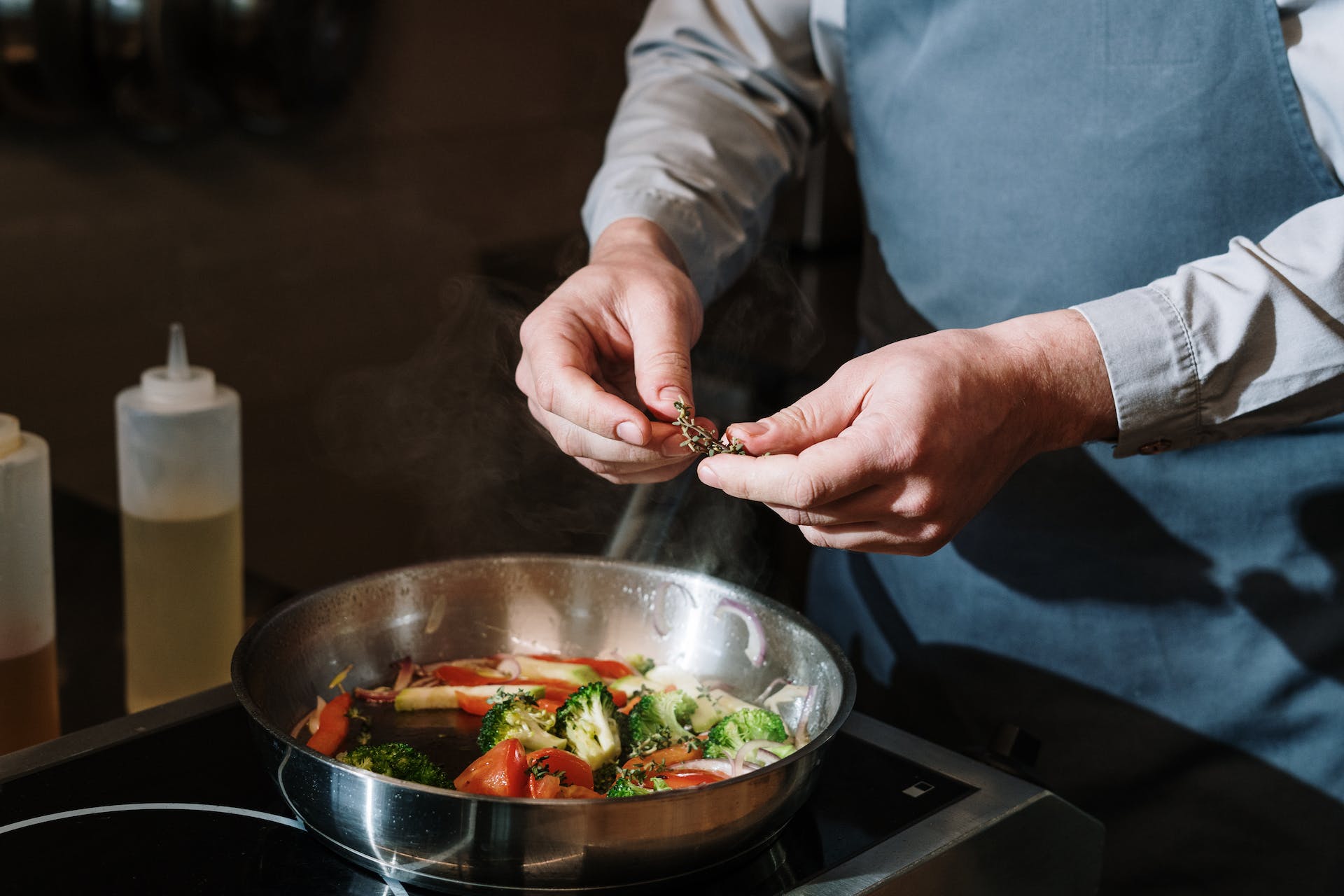Introduction To Vegetable Oil:
Cooking, baking is not only a craft but also a science. What way you cook actually depends on the certain ingredient that one uses to prepare those dishes . Many kitchens use vegetable oil because it is versatile and has a neutral taste. On the other hand, sometimes you may have to look for a substitute for vegetable oil. In this article, we will talk about several options if you want to eat healthier or you have no more of this kitchen classic for your recipe substitute.
Why Consider Substitutes?
Before considering the alternatives, it is a necessity to know why one might look for an alternative of vegetable oil. Some common reasons include:
- Health Concerns: Today, more and more people care about their health and are choosing products that give certain nutritional benefits.
- Allergies: Allergic or sensitive people will not be able to consume the common oils present in it.
- Flavor Preferences: There are alternative oils that can bring out unique flavors to some cooking styles and recipes.
Olive Oil: A Mediterranean Delight
Olive oil appears to be one of the most common and easiest alternatives to vegetable oil. This is one of the sources of monounsaturated fats and antioxidant content found in olive oil. Unique taste of this product can add great richness to your dishes, especially in salad dressings and while sautéing vegetables. When using olive oil as a substitute for vegetable oil.
Tip: Extra virgin olive oil is best used for foods that are improved with a rich taste, but light olive oil can serve as a gentle replacement.
Avocado Oil: A Creamy Option
Avocado oil is a great substitute for those seeking vegetable oil-like texture. Avocado oil has a high smoke point and is moderately seasoned; thus, it can be used in cooking and even baking. Due to its creaminess, lard is widely used in recipes where oil is a key component for the production of the moistness and end flakiness.
Pro Tip: Avocado oil helps you to make your cake batters or muffin mixes moist and rich.
Coconut Oil: A Tropical Twist
Coconut oil is an all-purpose replenisher of tropic flavor in your recipes for vegetable oils. Coconut oil which is rather popular because of its odd taste and odor blends perfectly into both sweet and savory recipes. Remember that coconut oil is a solid at the lower temperatures so may be needed to melt it first. When substituting, aim for a 1: 1 ratio.
Did You Know? Coconut oil consists of medium-chain triglycerides MCTs and is reported to have a number of health benefits.
Canola Oil: Neutral and Light
Canola oil is a great substitute for vegetable oil in case you are looking for something that does not have any flavor. Canola oil is very light in texture and can be used in all types of cooking from frying to baking. It has a subdued taste and does not overwhelm your ingredients with it flavor, so that their individual flavours can stand out.
Grapeseed Oil: A Heart-Healthy Choice
The other oil alternative for heart health is the grapeseed oil obtained from grape seeds. Grapeseed oil is light and sweet with high smoke point suitable for sautéing, frying or salad dressings. More, it contains polyunsaturated fats which are healthy for the heart.
Health Bonus: Grapeseed oil contains an antioxidant that protects your cells from damage, vitamin E.
For More Informative Content Visit : NRU Times
Butter: A Classic Choice
For the conservative types, butter can be used as a delicious replacement of vegetable oil in many recipes. Even though it may not be the healthiest alternative, its sumptuousness can add more indulgence to your meals. When substituting, use a 1:1 ratio and watch the salt if you are using butter with added sodium.
Chef’s Secret: Browned butter is nutty in taste and can enhance the flavor of your baked items.
Sunflower Oil: Light and Nutty
Sunflower oil is a light and versatile substitute for vegetable oil, developed from sunflower seeds. With a very soft, slightly nutty flavour it goes well with both sweet and savory foods. Sunflower oil has a high smoke point hence can be used for frying and deep-fry. When using sunflower oil, maintain a 1:1 ratio as you do with vegetable oil.
Baking Hack: Combine sunflower oil with a dab of your preferred nutty essence.
Sesame Oil: A Flavorful Accent
This gives us a new substitute of vegetable oil and toasted sesame oil can give your dishes distinctive flavors. This oil is widely used in Asian Cuisine and it best suits when used sparingly to avoid overpowering the dish. This is used with stir-fries, dressings and marinades as it has a rich nutty taste.
Culinary Trick: To achieve balanced flavors in your stir fry, consider using sesame oil coupled with neutral oil.
Lard: An Old-Fashioned Option
While not the healthiest alternative, lard can be used instead of vegetable oil in many recipes especially those that are traditionally or rustically inclined. Lard has a high smoking point and is excellent for frying, it makes dishes taste like they do. It is advisable to consume it moderately due to its high saturated fat content.
Historical Note: Before vegetable oils became prevalent, many cultures used lard as a cooking fat.
- Unveiling the Versatility:
Vegetable oil represents a column in the gastronomic pleasures world that not only provides flavor to different food items but also performs functionality. Now, this golden liquid oozing from the plants has become a part of kitchens everywhere in the world. In this detailed inquiry, we will delve into the intricate world of vegetable oil to set things straight about the origins beginnings , applications usages and even alternatives solutions.
- The Genesis of Vegetable Oil
Vegetable oil is obtained from an old technique of acquiring oils on various flowering plants. Initially, oils were extracted manually by grinding or other crushing of seeds. Further, over time and with the help of technological breakthroughs different ways to extract vegetable oils have been invented that are more effective than previous methods, this is how today’s variety of vegetable oils was born.
A Culinary Chameleon: Vegetable Oil in Cooking
One of the most distinguishing characteristics of vegetable oil in the kitchen is its adaptability. oil has a high smoke point so it is excellent for frying, sautéing and deep-frying. Its bland flavor will easily fit into many dishes – from crispy French fries to moist chocolate cakes.
Pro Tip: For sautéing, select oils with high smoke points such as peanut oil or soybean oil.
Vegetable Oil in Baking: The Unsung Hero
Critical role of vegetable oil in baking It gives moistness and a soft crumb, which is unparalleled in cakes muffins and cookies. Moreover, vegetable oils do not have such an intense taste that would dominate the flavors of baked goods so that other components could be enjoyed.
Baking Hack: You can lighten your baked goods by using vegetable oil instead of butter in some recipes.
The Health Perspective:Is Vegetable Oil a Good Alternative?
While vegetable oil is commonly lauded for its use in cooking, questions are raised regularly about the potential effects on health. What is more, a person should also remember that vegetable oils are not all alike. Some oils like olive oil which claim to have heart-healthy monounsaturated fats; others, such as coconut contain saturated fat.
The nutritional content of different vegetable oils is fundamental to making a healthy decision. oils, when taken in moderation and alongside a balanced diet, can be good sources of necessary fatty acids as well as vitamin E.
Health Note: Use oils rich in unsaturated fats, such as olive oil or canola to increase heart health.
Oil Around the World
Since globalization is shaping the culinary realm, it seems that vegetable oil has become a universal dimension in cuisines everywhere. Different cultures have adapted to the use of oil in different ways, from olive oil well-received by Mediterranean cuisine to palm oils used by Southeast Asia adding depth and richness into their traditional food.
The Environmental Impact: Sustainable Choices in Vegetable Oil
With concerns about environmental issues in the world, vegetable oil production has become an area of debate. This has raised concerns about the ecological impact of oil production which include unsustainable practices such as deforestation for plantations growing palm oil.
However, more and more vegetable oils are produced sustainably or responsibly sourced. By selecting to use oils certified by organizations such as the Roundtable on Sustainable Palm Oil (RSPO) or using alternatives like sunflower oil, consumers can make educated decisions.
Green Tip: Look for sustainably certified vegetable oils to ensure eco-friendly values are being upheld.
Vegetable Oil Alternatives: Navigating the Options
Though it is very common, there are situations where you might require something in place of vegetable oil. Fortunately enough, the culinary scene presents a plethora of choices. Some examples include olive oil, avocado oil or coconut oil each adding its own distinct flavor and nutritional value.
Kitchen Experiment: You should try to experiment with different oils and see how they improve or redefine the flavors in your most-loved recipes.
Making Vegetable Oil at Home
The prospect of creating vegetable oil from scratch is appealing to the curious home cook. Compare to industrial extraction involving intricate machines, domestic methods can be as basic as cold pressing or even infusing oils with herbs and spices for a custom feel.
Homemade Delight: Combine garlic and rosemary with oil to create a fragrant oil that would be great for drizzling over roasted vegetables.
The Future of Vegetable Oil: Innovations and Trends
With changing tastes in food and growing health-conscious tendencies, the future of vegetable oil promises innovation. Researchers are also looking for ways to make oil more nutritious, less destructive on the environment and even coming up with new kinds of oil from unusual sources.
Futuristic Flavors: Watch out for new kinds of oils with improved health value and sustainable production feature.
Conclusion
The type of cooking oils used in the world of culinary exploration can greatly influence your dishes flavor, texture and overall success. While the vegetable oil is a normal item in every kitchen, some of these substitutes provide different tastes and nutritional values that can transform your eating habits.
Experimenting with these alternatives gives you a chance to also adjust the meals according to special requirements, but it takes your culinary horizons even further. Each substitute you choose – be it the heart healthy richness of olive oil, coconut oil with its tropical twist, or sesame without for its nutty accent each brings a unique feature to your culinary creations.
So in conclusion, knowing the characteristics of various oils and fats allows you to make knowledgeable decisions based on your likes and personal health considerations. Well then, the next time you’re in need of a oil substitute, don’t hesitate to look into these alternatives and take your cooking to another level.
Overall oil is not just a simple cooking ingredient but it is a culinary chameleon that changes its appearance according to different cuisines, cooking techniques and dietary requirements. From the earliest of times to its use in modern kitchens, oil has survived it all; from adapting with changing culinary tastes and styles.
Shedding light on one of the many shades of green will enable us to make conscious decisions as we journey through varying scenarios in terms of health, environmental conservation and culinary adventures. So if you’re frying glistening delicacies, baking a delicious cake or simply sprinkling oil over a salad embrace the utility of vegetable and let it be your quiet culinary superstar.
Happy cooking!


